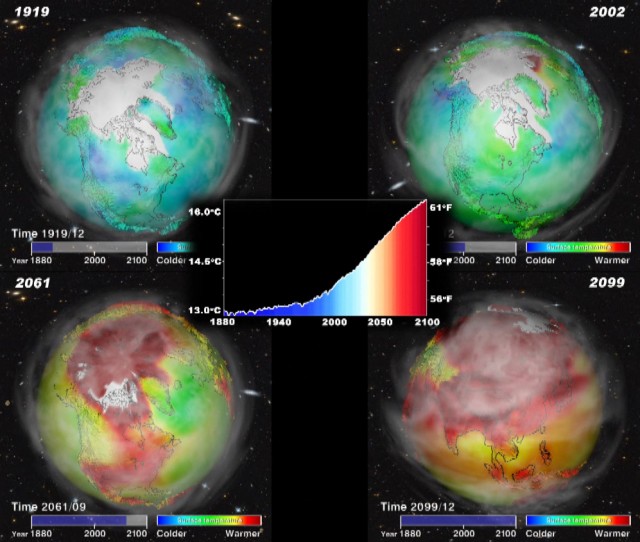Climate models get smarter, but uncertainty just won't go away
Ars Technica » Scientific Method 2012-10-29
It's been five years since the last report from the Intergovernmental Panel on Climate Change, and the organization is currently preparing its fifth assessment report (AR5). These reports provide both an update on what we've learned about the climate in the intervening years and projections for likely future climates based on that new understanding.
Those projections are powered by climate models. Starting with AR4, those projections were based on the work of the World Climate Research Programme. This group identifies the current climate models from a variety of institutions, and runs them under a variety of emissions scenarios. Then, the WCRP collects the results of multiple runs from the ensemble of climate models, and uses that to predict the likely climate change and remaining uncertainties.
You might expect the progress made during the intervening five years would greatly narrow the uncertainties since the last report. If so, get ready for disappointment. A pair of researchers from ETH Zurich has compared the results from AR4 with the ones that will be coming out in AR5, and they find that the uncertainties haven't gone down much. And, somewhat ironically, they blame the improvements—as researchers are able to add more factors to their models, each new factor comes with its own uncertainties, which keeps the models from narrowing in on a value.
Read 9 remaining paragraphs | Comments
